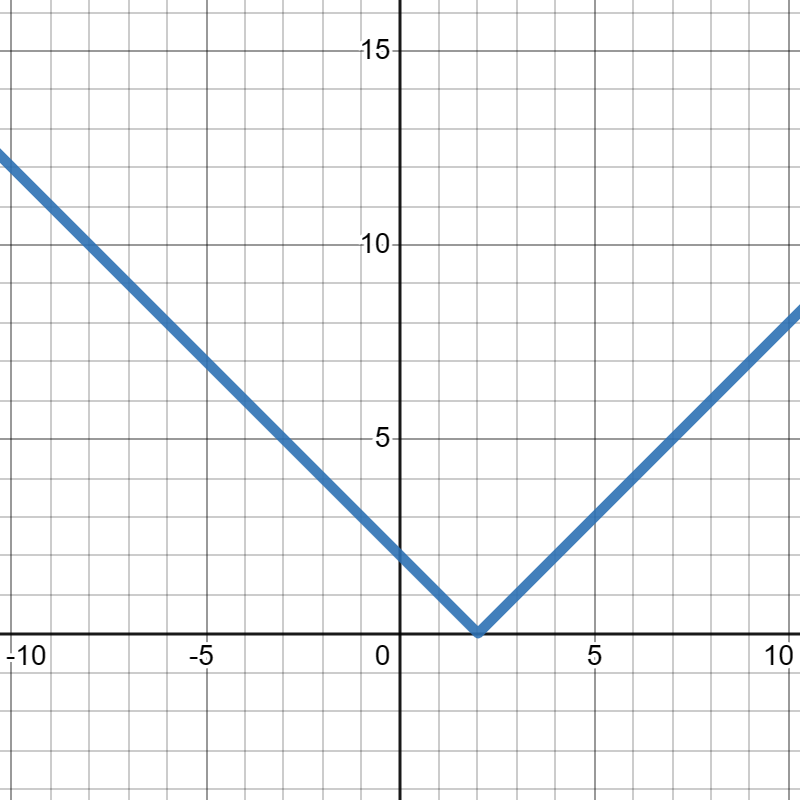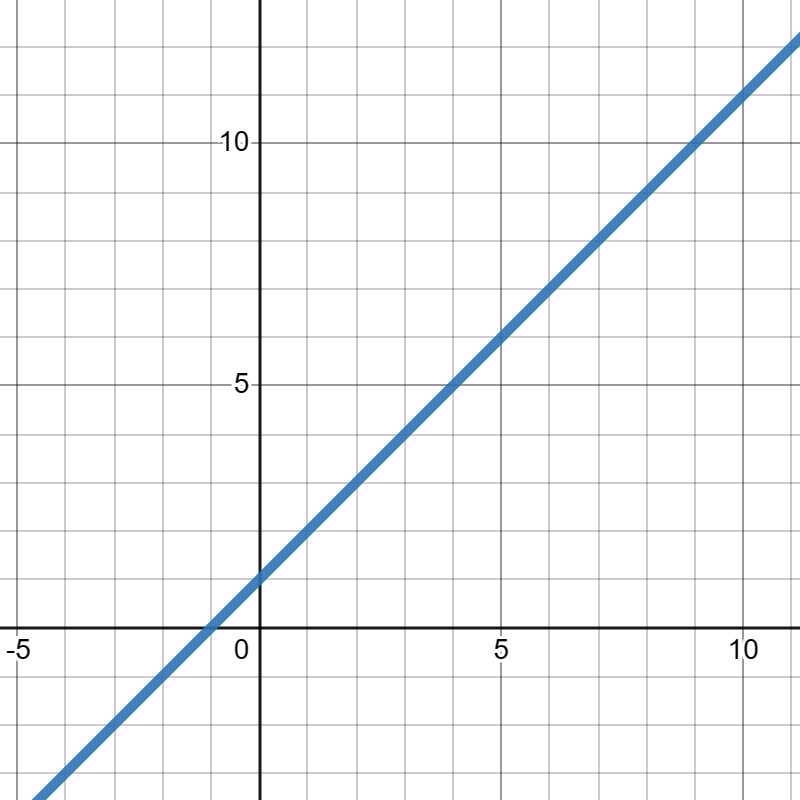Exercises 7.3 Practice Problems
1.
Suppose \(f(x)=x^2-2\text{.}\) Compute the average rate of change of \(f(x)\) from \(x=1\) to \(x=5\text{.}\)
2.
Suppose \(f(x)\) is given in the graph below. Compute the average rate of change of \(f(x)\) from \(x=-5\) to \(x=2\text{.}\)

3.
Suppose \(f(x)=x^2 +2x +3\text{.}\) Compute the average rate of change of \(f(x)\) from \(x=-1\) to \(x=1\text{.}\)
4.
Suppose \(g(x)\) is given in the table below. Compute the average rate of change of \(g(x)\) from \(x=1\) to \(x=5\text{.}\)
| \(x\) | \(1\) | \(2\) | \(3\) | \(4\) | \(5\) |
| \(g(x)\) | \(0\) | \(2\) | \(4\) | \(1\) | \(0\) |
5.
Suppose \(f(x)=\frac{x+3}{x-2}\text{.}\) Compute the average rate of change of \(f(x)\) from \(x=0\) to \(x=4\text{.}\)
6.
Suppose \(f(x)=x^3 + 5x\text{.}\) Compute the average rate of change of \(f(x)\) from \(x=-2\) to \(x=2\text{.}\)
7.
Suppose \(f(x)\) is given in the table below. Compute the average rate of change of \(f(x)\) from \(x=2\) to \(x=5\text{.}\)
| \(x\) | \(2\) | \(4\) | \(5\) | \(7\) | \(9\) |
| \(f(x)\) | \(1\) | \(-2\) | \(4\) | \(10\) | \(0\) |
8.
Suppose \(f(x)=x^2+16\text{.}\) Compute the average rate of change of \(f(x)\) from \(x=1\) to \(x=10\text{.}\)
9.
Suppose \(g(x)\) is given in the table below. Compute the average rate of change of \(g(x)\) from \(x=1\) to \(x=7\text{.}\)
| \(x\) | \(1\) | \(3\) | \(5\) | \(7\) | \(15\) |
| \(g(x)\) | \(10\) | \(2\) | \(14\) | \(21\) | \(0\) |
10.
Suppose \(f(x)=3x-7\text{.}\) Compute the average rate of change of \(f(x)\) from \(x=-5\) to \(x=-2\text{.}\)
11.
Suppose \(f(x)\) is given in the graph below. Compute the average rate of change of \(f(x)\) from \(x=0\) to \(x=4\text{.}\)

12.
Suppose \(f(x)=x^2-21\text{.}\) Compute the average rate of change of \(f(x)\) from \(x=3\) to \(x=5\text{.}\)
13.
Suppose \(f(x)=x^2-2\text{.}\) Compute the average rate of change of \(f(x)\) from \(x=1\) to \(x=1+h\text{.}\)
14.
Suppose \(f(x)=3x^2 +2x\text{.}\) Compute the average rate of change of \(f(x)\) from \(x=2\) to \(x=2+h\text{.}\)
15.
Suppose \(f(x)=10x+2\text{.}\) Compute the average rate of change of \(f(x)\) from \(x=a\) to \(x=a+h\text{.}\)
16.
Suppose \(f(x)=x^2 +4x +4\text{.}\) Compute the average rate of change of \(f(x)\) from \(x=a\) to \(x=a+h\text{.}\)
17.
Suppose \(f(x)=x^2+25\text{.}\) Compute the average rate of change of \(f(x)\) from \(x=5\) to \(x=5+h\text{.}\)
18.
Suppose \(f(x)=-x^2-3x+1\text{.}\) Compute the average rate of change of \(f(x)\) from \(x=a\) to \(x=a+h\text{.}\)
19.
Suppose \(f(x)=2x^2+10x\text{.}\) Compute the average rate of change of \(f(x)\) from \(x=3\) to \(x=3+h\text{.}\)